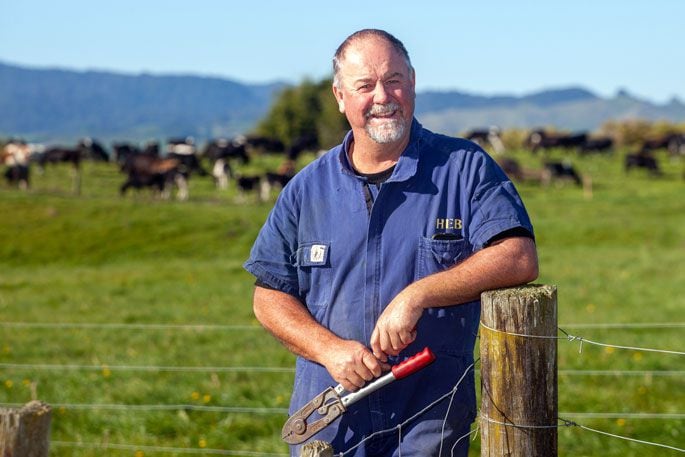While welcoming an exemption from a national programme to reduce methane emissions, a Waikato dairy farming leader believes those in the industry are acutely aware of the issue.
The Government recently announced it would amend the Climate Change Response Act 2002 by January 1, 2025, to ensure agriculture does not enter the New Zealand Emissions Trading Scheme.
Federated Farmers’ Waikato Dairy Section chair and Matamata branch chair Matthew Zonderop says the sector is not shying away from the need to reduce methane emissions, but a “blunt instrument” was not going to solve the problem.
The Te Poi sharemilker says including farming in the emissions trading scheme would “open a real can of worms”.
While indications were that costs to farmers would have been 95% subsidised by Government, Zonderop says the “extra tax” would have still hurt the industry.
“Smaller herds would’ve been driven out of existence.”
He says farmers would have been forced to de-stock, with resulting staff losses.
Reducing dairy production would also leave New Zealand open to competition from “less-efficient” countries overseas.
Zonderop says forcing farmers into the ETS would’ve been “a very big stick”, creating a situation where large corporate entities “played the system” by buying big forestry blocks to claim carbon credits.
Unique Position
There is no easy solution to the issue, he says. “New Zealand is in a unique position as a pastoral-based economy.”
Dairy farming operates on such a scale here that housing animals in sheds and collecting effluent for methane digesters – as happens overseas – is simply not an option.
However, Zonderop says practical solutions being looked at include the development of a vaccine to neutralise bacteria that produce methane in cattle.
He says advances in breeding, with “more efficient” cows producing more milk on the same amount of feed is reducing methane emissions from New Zealand farms.
Other parts of their operation farmers are working on to mitigate the issue include different cropping options and smarter use of fertiliser.
To this end, he says the mindset of farmers has changed in relation to their cows’ diet.
“It is not just about production and profit.”
While there has been opposition to past government schemes to curb methane emissions from dairy farms, Zonderop believes farmers are coming on board.
“We know we don’t have a choice,” he says. “To do nothing is not an option. We can no longer say that weather patterns haven’t changed.”
However, Zonderop says this must be balanced with the potential economic cost to the country.
“There is nothing to replace agriculture. That’s the bottom line,” he says. “We are going to have to navigate as best we can.”



0 comments
Leave a Comment
You must be logged in to make a comment.